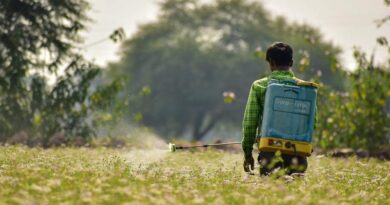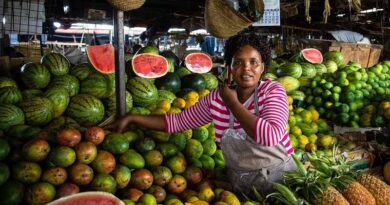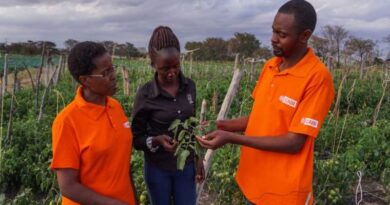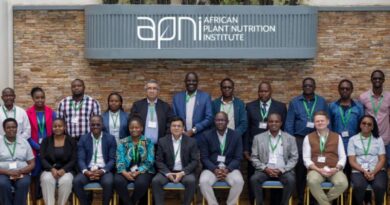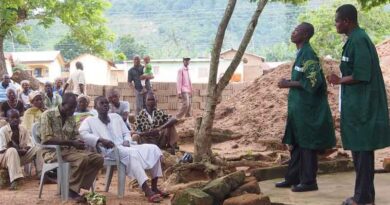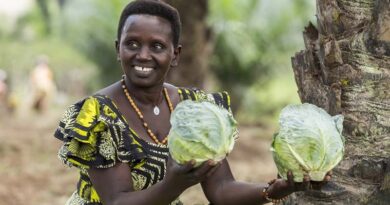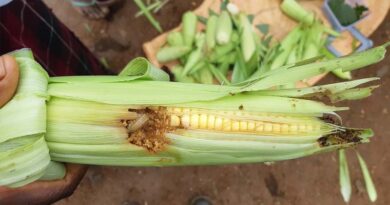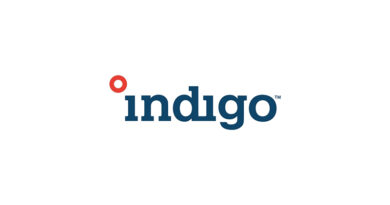PlantwisePlus training helps Kenya meet KS1758 food safety standard
26 October 2022, Kenya: CABI – through the PlantwisePlus programme and in partnership with the Fresh Produce Consortium of Kenya (FPC Kenya) – has delivered training to help Kenya meet the KS1758 food safety standard for its fruits, vegetables and flowers.
The six-day training was provided for 120 trainers, who represent different fruit, vegetable and flower exporters in Kenya, on issues such as post-harvest handling, labour safety, pesticide use, plant nutrition, traceability and record keeping.
It is then expected that those trained will cascade this knowledge down to other actors within their respective organizations to meet the KS1758 standard that the Kenyan Government is making mandatory to meet from 1 November 2022.
About the standard
The Kenya Standard 1758: 2016 (KS 1758) is a code of practice for Kenya’s horticulture industry, outlining the sanitary and safety criteria for the production, handling, and sale of flowers, ornamentals, fruits, vegetables, herbs, and spices. It is divided into two parts with part one covering floriculture, and part two covering fruits and vegetables.
The horticulture industry players in Kenya, in recognizing the importance of the sub-sector, and the challenges faced by the sub-sector, developed a code of practice to regulate the production of horticultural produce to guarantee the supply of high-quality, healthy, and safe produce for both the domestic and international markets.
This move gave birth to KS 1758. The Standard is based on four major pillars namely: food safety, good agricultural practice, worker welfare, and care for the environment.
This Standard is administered by the Agriculture and Food Authority (AFA-Horticultural Crops Directorate – HCD) and it is domiciled at the Kenya Bureau of Standards (KEBS), with different industry stakeholders tasked with the duty of creating awareness of the standard.
FPC Kenya, the leading association in the horticulture sector in Kenya, is currently taking charge of creating awareness among its members and most importantly, building their capacity to implement and comply with the Standard’s requirements.
Increased food security and income
PlantwisePlus builds upon CABI’s Plantwise and Action on Invasives programmes and particularly aims to empower farmers to increase income, food security and food safety amid a changing climate, which can exacerbate crop losses.
One element of PlantwisePlus is to further create and transform employment to support economic development and contribute to consumer demand for safer, higher quality and locally produced food to drive the uptake of safer production practices.
Kenya is one of six PlantwisePlus countries that will effectively serve to ‘prove-the-concept’ for the programme in its delivery of digital innovations that include the CABI BioProtection Portal – a free tool to enhance awareness and uptake of biocontrol and biopesticide products by growers and advisors.
Meeting the standard
Lucy Karanja, CABI’s Content Manager based at its Africa regional centre in Nairobi, was interviewed by Kenya’s national TV channel KTN about the training to meet the KS1758 standard.
Ms Karanja said, “If you look at maize production, for example, it is true 10 years ago that the population was lower than what we have today but then the problem is there is a lot of soil degradation due to unsustainable agricultural practices.
“So, you want to farm every season but you do not add nutrients. Because of this, the soil ends up being exhausted.
“The other challenge that we have been having which is being addressed by this KS1758 standard is the climate change. For example, the impact rains have changed so the yield we used to get 10 years ago – we can no longer achieve that.
“The KS1758 standard is addressing sustainable production, so meaning, if you are getting something out of the soil you also need to put something back into the soil. And that is in terms of using good agricultural practices.”
Importance of fertilizer
Ms Karanja added that it is important to use the correct amount and type of fertilizer for the particular value chain. By following all these steps, she said, farmers will ultimately be able to increase their market share and profitability for their crops.
One particular session on fertilizer, for instance, also highlighted how operators should conduct a risk assessment of fertigation water and maintain records of water and fertilizer used.
Another session on the control of pests and diseases and the procurement of pesticides, focused on the transportation of pesticides and hazardous chemicals, storage of pesticides, application of pesticides and protection of workers, disposal of surplus, unwanted, and empty pesticide containers.
The trainer also emphasized the importance of maintaining pesticide application records.
Food safety and quality
On another day, Mr Okisegere Ojepat, the CEO of FPC Kenya took the participants through food safety, quality, and hygiene. The objective of this session was to enable the participants to understand the concept of food safety and quality and the requirements of good hygiene practices.
As part of his introduction, he talked of food-borne illness being a genuine concern globally. Other challenges with climate change, changing agricultural practices and human behaviour being continue to be key factors affecting food safety systems.
He then discussed the concepts of food safety hazards, pre-requisite programs (PRPs), hygiene, the quality concept, traceability, and food infection. All these components are covered in the KS 1758 Standard, hence the push for the full implantation of the Standard.
Mr Ojepat also led the closing of the training – thanking CABI for supporting the training and encouraging participants to share what they had learnt with others.
Also Read: List of pesticides restricted and banned for use in Agriculture in India
(For Latest Agriculture News & Updates, follow Krishak Jagat on Google News)




